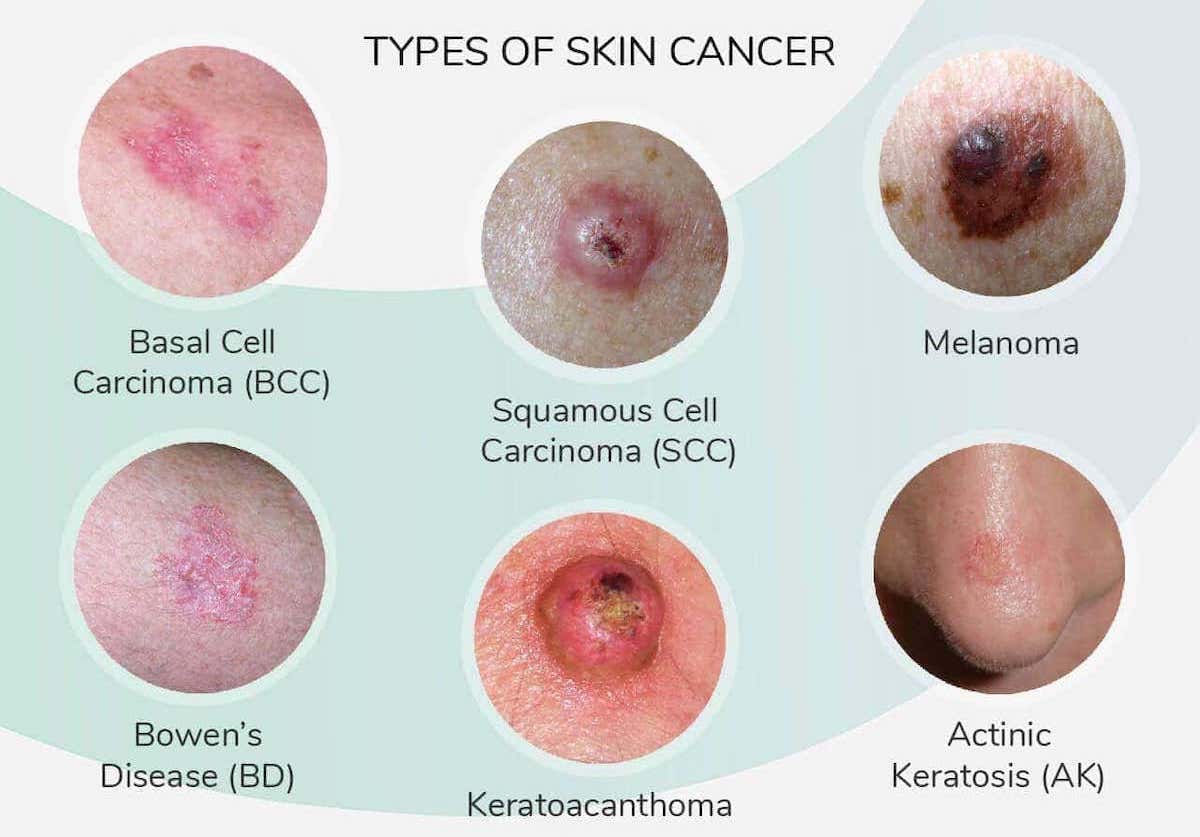It may seem that only people with light skin color get skin cancer, but nothing could be further from the truth. Americans with darker skin tones, such as African-Americans are also diagnosed with this cancer. Often – 25% of melanoma cases in African Americans – it is found at a much too late stage, which means that cancer has already spread to lymph nodes, organs, or other body tissue. This is why it’s smart to know how to detect skin cancer yourself and avoid potentially life-threatening complications, like metastases and eventually death.

Symptoms of Skin Cancer
Every type has its own symptoms. Basal cell carcinoma may appear as a pearly/waxy bump, a flat, flesh-colored, or brown scar-like lesion, or a bleeding or scabbing sore that heals and returns. Squamous cell carcinoma may appear as a firm and red nodule or a flat lesion with a scaly or crusty surface. Melanoma can take different forms, for more information on how to recognize it: read here!
Treatment Options
It’s important to contact your professional healthcare provider as soon as possible, once you notice some changes to your skin. It doesn’t always have to be skin cancer- it can also be some skin condition – but the sooner it is examined, diagnosed and treated the better. If your healthcare provider suspects the same, he or she will do a biopsy, to take a closer look. If the biopsy is indeed cancerous, the right treatment plan is set up and if possible, treatment will start immediately. Treatment options include:
- Cryotherapy, to freeze cancerous cells
- Surgery, to remove the cancerous cells
- Chemotherapy
- Immunotherapy
- Radiation therapy
Information is Key!
Unfortunately, skin cancer cannot be prevented, but you can reduce the risk by considering the following things:
- Avoid the sun as much as possible, especially between 10 am and 4 pm
- Stop using tanning beds
- Wear hats with brims, sunglasses, and thin clothing with long sleeves
- Use sunscreen with an SPF factor of at least 30. Reapply every 1.5 when sweating or swimming. Apply year-round!
- Use lip balm with sunscreen
These days, medical professionals have various ways to treat cancer, including the options mentioned above. Sometimes, doctors combine these treatments, but there may be cases where they are no longer effective, prompting consideration of other options. To stay informed about new treatments, it is crucial to conduct extensive online research. If you are diagnosed with melanoma and are unsatisfied with your treatment plan, seeking a second opinion from another hospital or oncology center is always a wise decision. Keep exploring to learn more about (skin) cancer, its treatment options, and other skin conditions. Continue your search here:

